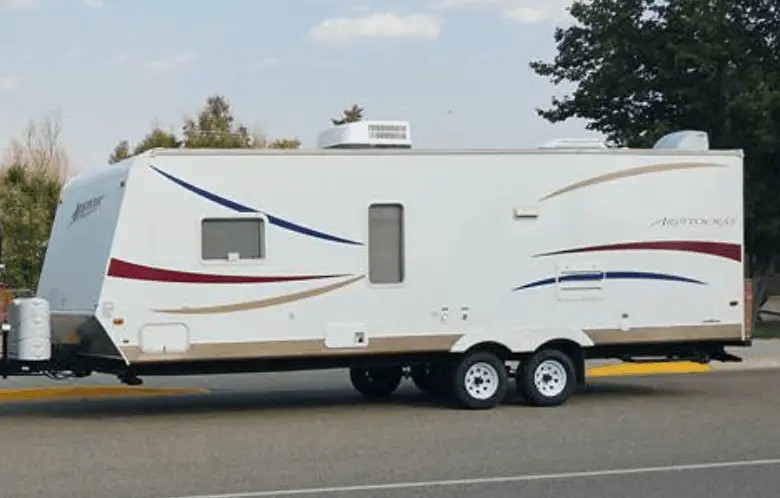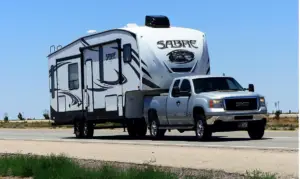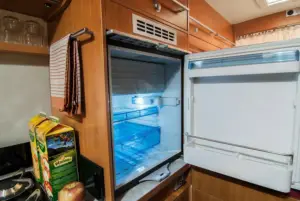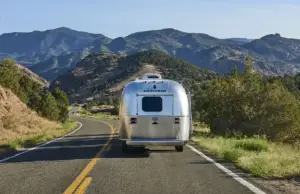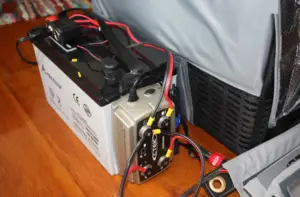Tires are the most crucial components of RV or travel trailers. It is recommended to have a glance at them, monitor the pressure, and keep them clean to ensure the longevity of your camper.
If you do not take the prerequisite care of the tires of the RV or motorhome, it might lead to insidious damage, thereby reducing the durability of the RV. If you want to know how to protect RV tires, then do stay tuned.
Protecting the RV tires from the harmful ultraviolet rays
At times, the harmful UV rays of the sun might lead to the breakage of the tire compounds. If the RV is being parked outside the garage or shade, you should use a UV reflective material or RV tire wheel covers for covering the tires of the trailer.
Also, you can lean plywood boards of large size against every tire to provide protection to them from the harmful sun rays. But, the best option would be to keep the vehicle in the shade.
Jacking up the trailer tires
If pressure from the trailer’s weight is a specific section of the tire for a prolonged period, it might lead to the damage of the vehicle, primarily on the hot asphalt. Also, as the tire of the trailer is in long-term contact with the ground, it might lead to dry rot.
Here, you need to jack the tires of the trailer while they are not in use for avoiding the heat. You should refrain from keeping the vehicle in one place for too long. So, you need to move the trailers occasionally and frequently to prevent the pressing of the tire’s pressure against the contact patches for a longer period.
Monitor the tires of the RV for wear and damage regularly
You need to monitor the tires of the vehicle regularly so that the RV can have the prerequisite traction. You should also inspect the tires for cracks, wear, and damage which might reduce its longevity.
Also, you should ensure to check the tire pressure of the vehicle regularly as there are risks of explode of the overinflated tires. If the tires are underinflated, it might lead to the creation of control issues as well as the generation of more resistance on the road that might impact the gas mileage.
Replacing damaged and old tires of your vehicle
The tires of RV come with certain longevity. You require replacing the damaged or old tires of your vehicle before they fail during any emergency. It is recommended to replace the damaged or old tires of the RV vehicle for new tires.
If you find any signs of premature aging, you require replacing them more without wasting time. It is also necessary to look for the obvious signs of aging in the vehicle, including fine cracks in the sidewall and tread to protect it from failure.
Proper inflation of tires
Not keeping proper pressure in RV tires can lead to many issues. Blow out on the road due to incorrect inflation is commonly seen thing. A correct pressure in the tire is way more important.
A good time to see to this is the morning time when the RV tires pressure won’t read wrong. While you are traveling the tire pressure will be high due to heat. How much PSI should be maintained totally depends on the tires, RV weight.
Normally you can get this information either from the tire itself or from the RV manual. On most Rvs you would find a sticker inside the cabin mentioning these details. But remember those details would be for tires that originally come with the RV.
If you have to change the tires, make sure you get the same type of tires that it came with originally.
Maintaining the wastewater system
To protect the tires of the RV, you should make sure to maintain the wastewater system of the travel trailer. To achieve this, it is advisable to utilize chemicals that work properly with every system. Do not forget to flush the wastewater system of your vehicle regularly.
Besides this, you require using adequate fluid while starting the system after completion of flushing. If you fail to maintain the wastewater system of your vehicle, there will be an excessive amount of buildup, thereby resulting in operational failure, system clogging, and seizing of valves.
How to prevent RV tire rot
Tires of your RV will degrade eventually, but there are certain measures, you can follow, for delaying the process. Tires might get damaged when they are exposed to adverse weather elements.
The best option for preventing the dry rotting of the vehicle is keeping them in a cool and dry environment. It will reduce the aging of the vehicle and add to its durability. Here are some tips for preventing the rotting of the RV tires:
To prevent the dry rotting of the tires, you need to clean and dry them before storing them.
- Keep the tires away from the adverse weather conditions.
- Make sure to store them in a dry and cool environment.
- Storage of the tires in the airtight plastic bag.
- Storing the tires horizontally or vertically.
If you have to store the tires for a longer period, you should ensure to remove them from the RV.
Do RV tires cover help ?
The tire covers have gained high popularity in protecting the tires of the RV from the adverse weather conditions. Different brands of tire covers are available in the market which stands out of the ordinary in blocking the harmful ultraviolet rays of the sun.
These products are considered to be an ideal choice to protect the tires of the travel trailer if you need to keep them outdoors for a shorter or extended period.
Tips to maintain RV tires in winter storage
Tires are more prone to damage during winter and you need to make the right preparations for ensuring long-term protection to the vehicle.
- For taking care of the tires of the vehicle during the season, make sure to monitor the pressure regularly.
- Make sure to clean the tires occasionally so that there is no accumulation of dust, dirt, and grime on the vehicle. Hence, it is recommended to give a good wash to it with the aid of automotive soap and water.
- If you are planning to store the RV on the dirt or asphalt during the winter season, you require rolling the tires on the wood, cardboard of suitable barriers. If you are going to store the tire of the RV on the wood, you need to ensure that it has sufficient width so that the tire can be accommodated easily.
- You need to take your vehicle for an occasional drive during the winter season. As you move the RV and ensure that it is not sitting in a single place, you can set free the pressure from the specific part of the tire that was connected to the ground. Moving the car occasionally is also useful in the prevention of flat spotting and cracking.
How long do RV tires last
The average life of an RV tire is around 5 years. Having said this tires may loose thread earlier than this. Also, tires may be in good condition even after 5 years. Even though the tires may be in usable condition its better to change them by 5-6 years after proper checking.
It all depends on how many miles your drive throughout the year. Also on the way you store the RV and protect the tires from all the harsh elements. Someone who drives more than 12,000 miles would see tires loosing thread faster as compared to the one driving less than 5000 miles.
Tires loosing thread is a major concern for those who travel in and out or those who do it full time. Keeping a close eye on tires is thus very impirtna. You definitely don’t want a blow out during travel. So how do you know the tires are coming their age?
Some of the aging signs one can look for include below:
- Cracks start to appear on the tires.
- Tires seem to loose thread, even though the mileage is less or when the camper is in storage.
- As an experience RV driver you would get the feeling of aging tires.
Conclusion
Having RV tires in good conditions is as critical as any other component or engine of the RV itself. Protecting the tires during the winter or during bright sunshine is thus very important. RV tires do have certain life time but not taking good care of them can result in reducing its life.

